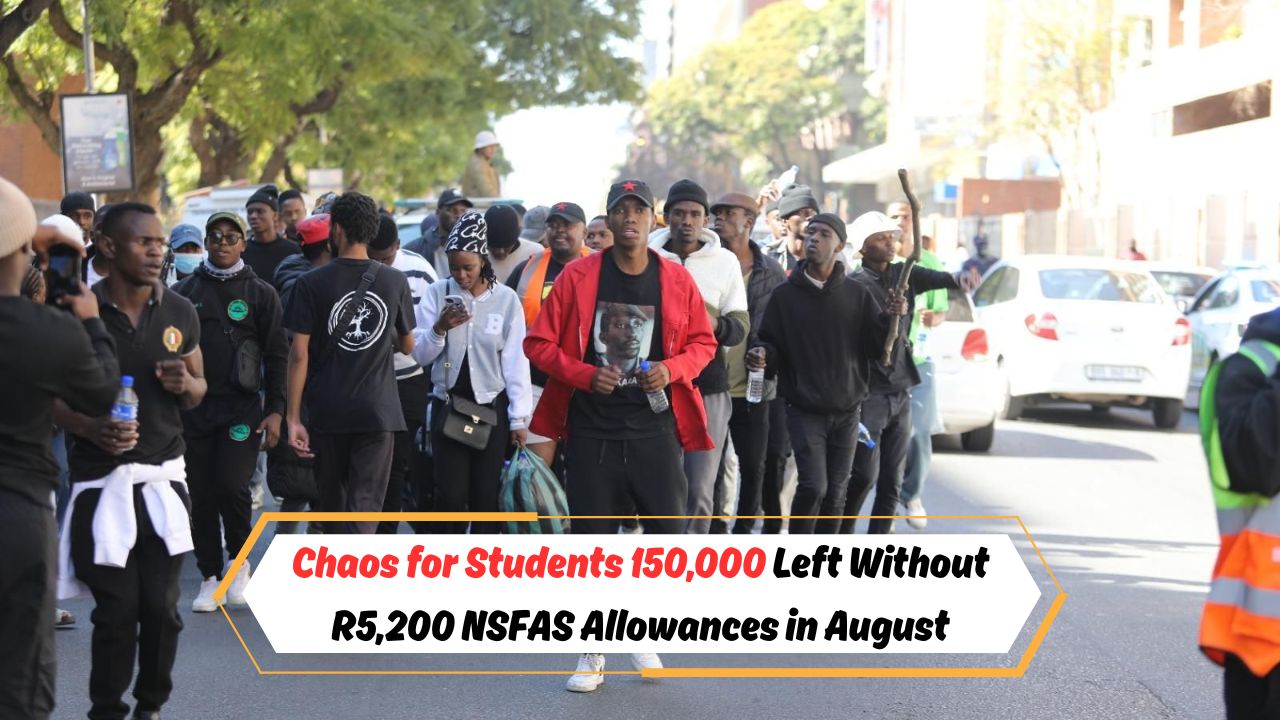NSFAS Payment Delays – The National Student Financial Aid Scheme (NSFAS) has once again found itself at the centre of a crisis, leaving over 150,000 students without their much-needed R5,200 monthly allowances for August 2025. As universities resume for the second semester, affected students are facing mounting financial pressure—struggling to afford essentials like food, transport, and rent. The delayed payments have sparked frustration across campuses, with student bodies calling for urgent intervention. Many blame poor management and inefficiencies within NSFAS systems, while others demand accountability from the higher education ministry. The situation highlights ongoing issues plaguing student funding in South Africa.
System Failures and Bureaucratic Delays Deepen Student Struggles
Students and parents alike are questioning the reliability of NSFAS after continued delays in disbursing allowances. In August 2025, a reported system glitch, combined with bureaucratic miscommunication, has halted payments to thousands. For many students, the R5,200 stipend is their only means of survival while pursuing their studies. Without it, they are left to navigate serious financial hardships. Protests have erupted at several major institutions, with calls growing louder for transparent explanations and quicker resolutions. NSFAS has yet to present a clear timeline for payments, leaving students in uncertainty and risking further damage to their academic progress.
Government Accountability and Long-Term Solutions Demanded
The NSFAS crisis has drawn attention from political parties and civil society organisations demanding urgent reforms. Critics argue that despite a multi-billion rand budget, NSFAS continues to underperform and mismanage its responsibilities. Students say they feel abandoned by both NSFAS and the Department of Higher Education. The lack of a long-term solution fuels the cycle of uncertainty year after year. Stakeholders are calling for audits, digital infrastructure improvements, and the resignation of top officials. Until structural reforms are implemented, experts warn that similar crises will persist, harming the future of countless deserving students across South Africa.
Voices From the Ground: Students Share Their Stories
Many students affected by the NSFAS delays have shared heart-wrenching stories about their struggles. Some report skipping meals or sleeping in libraries due to unpaid rent. Others say they cannot afford transport to attend lectures, putting their education in jeopardy. One student from the University of Johannesburg described how she had to borrow money to survive, while another from the University of Cape Town said he’s been couch-surfing for weeks. These personal accounts reveal the human cost behind administrative failures, showing that delayed payments are more than just numbers—they represent disrupted lives and dreams.
Urgent Action Needed to Prevent Further Harm
With tensions rising and the academic year at risk, experts stress the need for immediate intervention. Educational stakeholders, student leaders, and government departments must come together to resolve the NSFAS crisis. Suggested short-term solutions include emergency funding for affected students, while long-term plans require systemic reforms. A task force could help restore trust and ensure smoother operations in future. Without swift action, the damage may become irreversible—not only to students’ academic paths but to public confidence in government-run aid programs. The time to act is now before the consequences become more severe and widespread.
